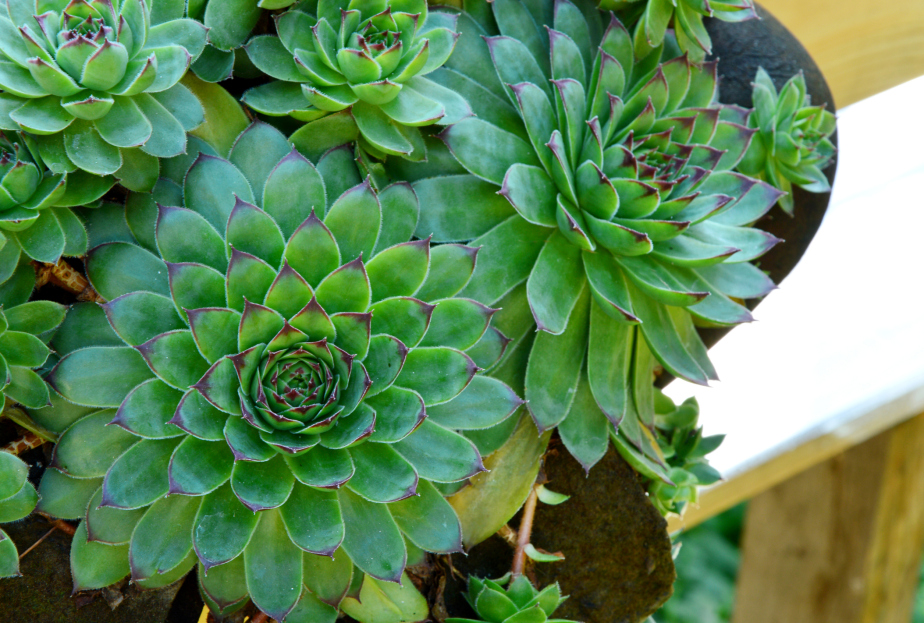
Hens and Chicks (Sempervivum spp.) are hardy, rosette-forming succulents known for their unique growth habit and ability to produce offsets, or "chicks," around the parent plant, the "hen." These low-maintenance plants are perfect for beginners and experienced gardeners alike, thriving both indoors and outdoors. Here’s how to care for your Hens and Chicks houseplant to keep it healthy and thriving.
Hens and Chicks thrive in bright, direct sunlight but can also tolerate partial shade. Indoors, place them near a south- or west-facing window where they can get at least 4-6 hours of sunlight daily. Outdoors, they prefer sunny spots with well-draining soil. Insufficient light may cause the rosettes to stretch and lose their compact shape.
These succulents are drought-tolerant and require minimal watering. Follow the “soak and dry” method: water thoroughly and then allow the soil to dry out completely before watering again. Overwatering can lead to root rot, so it’s better to underwater than overwater. During its growing season (spring and summer), water every 2-3 weeks. In fall and winter, reduce watering frequency to once a month or less.
Hens and Chicks need well-draining soil to thrive. Use a cactus or succulent soil potting mix, or create your own by combining regular potting soil with sand or perlite. If planting outdoors, ensure the soil is sandy or rocky to prevent waterlogging.
Sempervivum plants are cold-hardy and can tolerate temperatures as low as -30°F (-34°C), making them ideal for outdoor gardens in cooler climates. Indoors, they prefer temperatures between 60-80°F (15-27°C). They thrive in low humidity and do not require additional moisture in the air.
Hens and Chicks are not heavy feeders. During the growing season, apply a diluted, balanced fertilizer once a month. Avoid over-fertilizing, as it can lead to leggy growth and reduced vibrancy. Skip fertilization during the winter months when the plant is dormant.
Pruning is minimal for Sempervivum. Remove dead leaves or spent rosettes to keep the plant looking neat and healthy. Use clean scissors or simply pluck off the dried leaves by hand.
Propagation is one of the easiest and most rewarding aspects of caring for Hens and Chicks. The plant naturally produces offsets, or "chicks," which can be separated from the mother plant once they’re mature. Gently pull or cut the chick away from the hen, let it dry for a day to allow the cut to callous, and plant it in well-draining soil. Water sparingly until the roots establish.
Hens and Chicks are non-toxic to pets, making them a great choice for households with curious cats or dogs. While they’re safe, it’s always a good idea to monitor pets to ensure they don’t damage the plant.